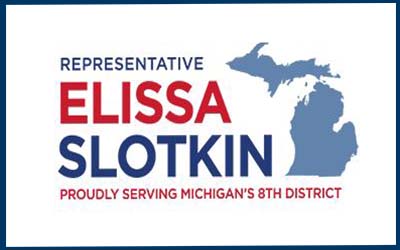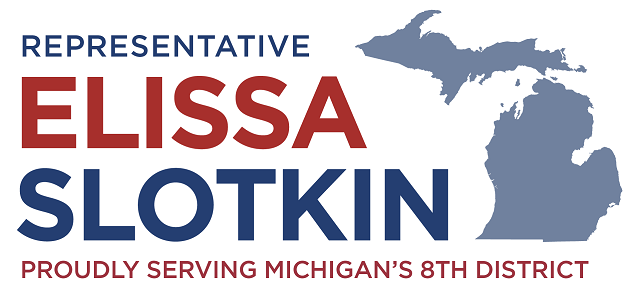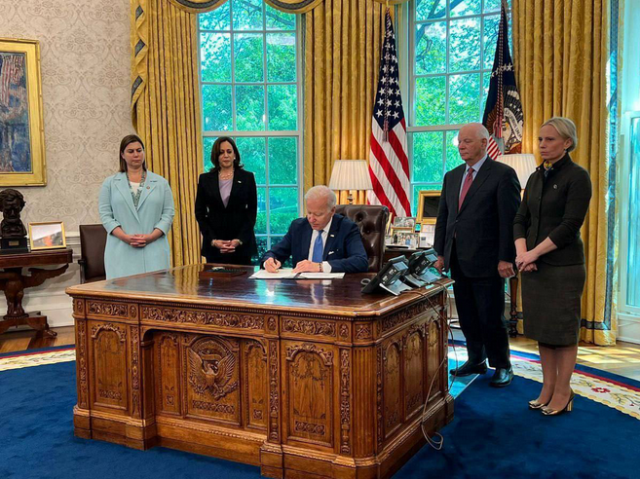
New Data Showing Record Small Business Growth

FOR IMMEDIATE RELEASE May 16, 2022 Contact: [email protected]
Gov. Whitmer Announces New Data Showing Record Small Business Growth Michigan had fastest small business job growth in 23 years, added 170,000 jobs in first three quarters
LANSING, Mich. — Today, Governor Gretchen Whitmer highlighted new data showing Michigan’s economic jumpstart continues as small businesses in the state are experiencing tremendous growth and expansion. In the first three quarters of 2021 alone, small businesses with fewer than 50 employees created almost 170,000 jobs, the fastest start to small business job growth in 23 years, according to the Michigan Bureau of Labor Market Information. The state also saw an explosion of entrepreneurs and business owners beginning new ventures in 2021, with 150,000 new small business applications filed to start businesses, which is 59% more than in 2019.
“Small businesses form the backbone of Michigan’s economy and are the anchors of communities across the state. Through tough times, they’ve shown grit and innovation to continue getting things done for their customers and employees,” said Governor Gretchen Whitmer. “Recent data shows that entrepreneurs are fired up, starting tens of thousands of businesses and creating nearly 170,000 jobs. While the numbers are encouraging, we must build on this momentum by making investments to retain and recruit more workers, expand operations, and attract additional investment. Together, let’s keep getting things done for Michigan’s booming small business community.”
Michigan is home to 902,000 small businesses, with 1.9 million small business employees, representing 48.3 % of Michigan workers. 99.6% of Michigan businesses are defined as small businesses with fewer than 500 employees.
“The entrepreneurial spirit is thriving in Michigan,” said J.D. Collins, CEO of Michigan Small Business Development Center, a statewide resource for small businesses. “Our consultants are experiencing a record number of start-up ventures and businesses in generational transition. We need the continued support of programs such as the MI New Economy Plan to ensure that Michigan is the best place to start and grow a business.”
Governor Whitmer remains committed to supporting small businesses as Michigan continues growing its economy. Recently, the governor laid out a $2.1 billion proposal to grow Michigan’s middle class, support small businesses and invest in communities. As Michigan’s economy grows, bolstered by a multi-billion-dollar surplus and increasing momentum, Governor Whitmer’s proposals will tackle underlying issues faced by small businesses and make bold investments needed to create economic prosperity for all.
The Department of Labor and Economic Opportunity is focused on connecting talent to businesses and providing employers with worker resources. Initiatives include:
“While these numbers are indicative of a strong comeback, our work of supporting small businesses through talent programs, employer resources, and the governor’s MI New Economy plan continues to be critical to Michigan’s long-term economic success,” said Susan Corbin, Director of the Michigan Department of Labor and Economic Opportunity.
The Michigan Economic Development Corporation (MEDC) shares a commitment to supporting the success of the small businesses that make up the backbone of the state’s economy. Since October 2020, MEDC has assisted small businesses in all 83 counties with more than $73.7 million in funding, helping more than 560 new businesses start up and helping small businesses generate more than $4.3 billion in new revenue. This support builds on the 23 targeted response and relief programs launched during COVID to support 25,000 businesses across all 83 counties, helping to retain 200,000 jobs during the pandemic.
“No business is small to those who are putting it all on the line, and so we remain focused on creating pathways and opportunities for our entrepreneurs to realize their vision,” said Quentin L. Messer, Jr., CEO of the Michigan Economic Development Corporation. “The strength of our economy is directly tied to the success of our small businesses and through the MI New Economy plan we will continue our commitment to efforts to ensure these ventures can thrive here in Michigan.”
From access to capital and mentorship support to networking connections and international growth, MEDC proudly supports the growth and success of small businesses across all corners of the state with a new Small Business Services leadership position and team within the organization and with programs including:
To learn more about these programs and small business resources visit: https://www.michiganbusiness.
|










